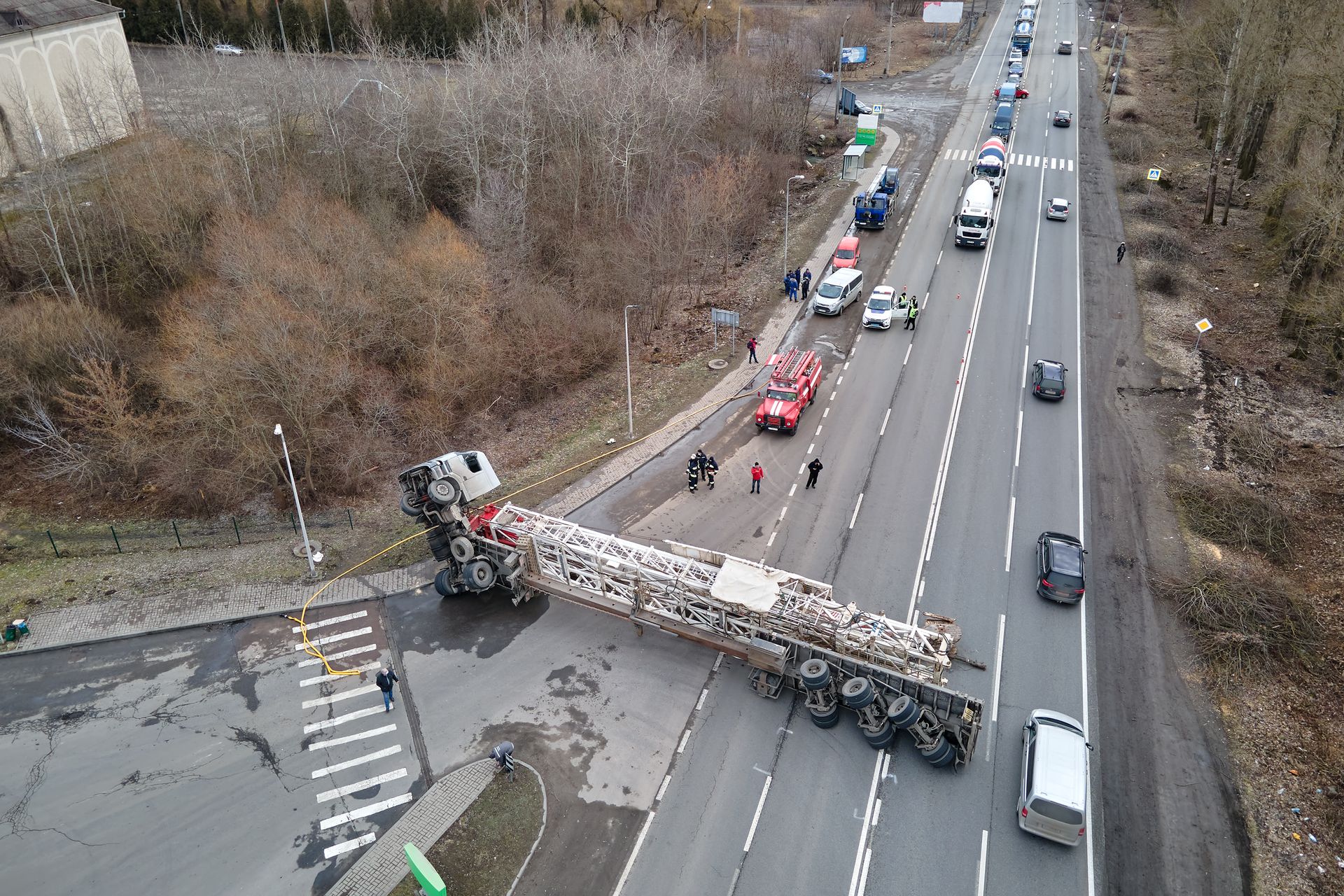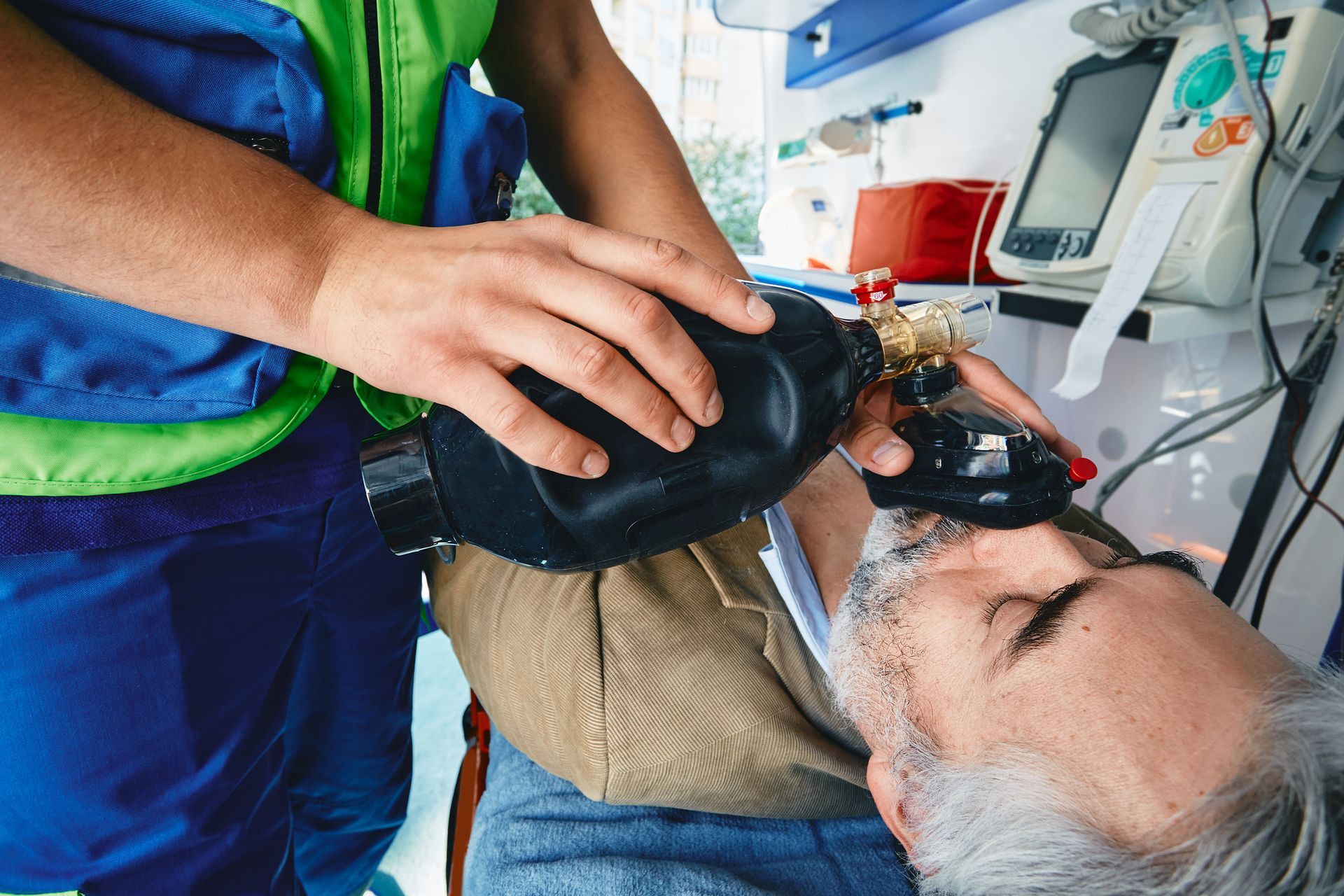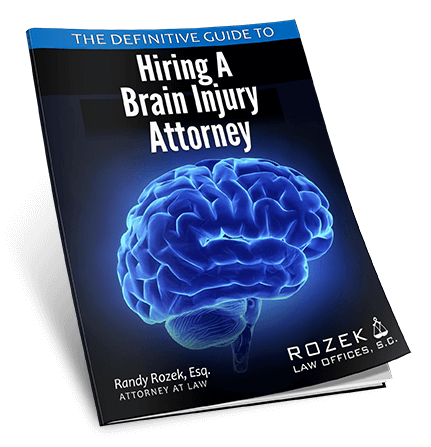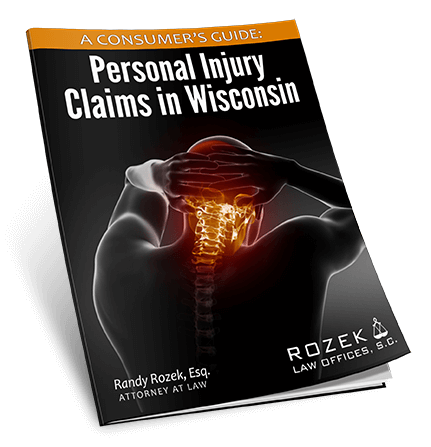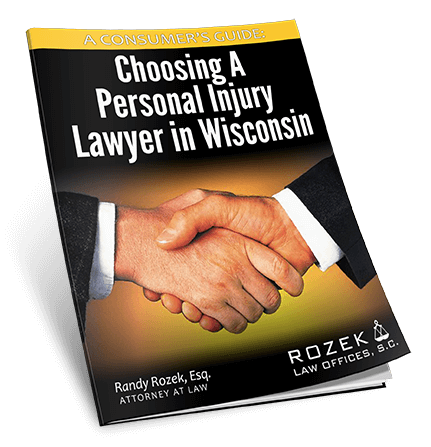$8.3 Million Verdict in a Negligent Security Case for TBI and PTSD
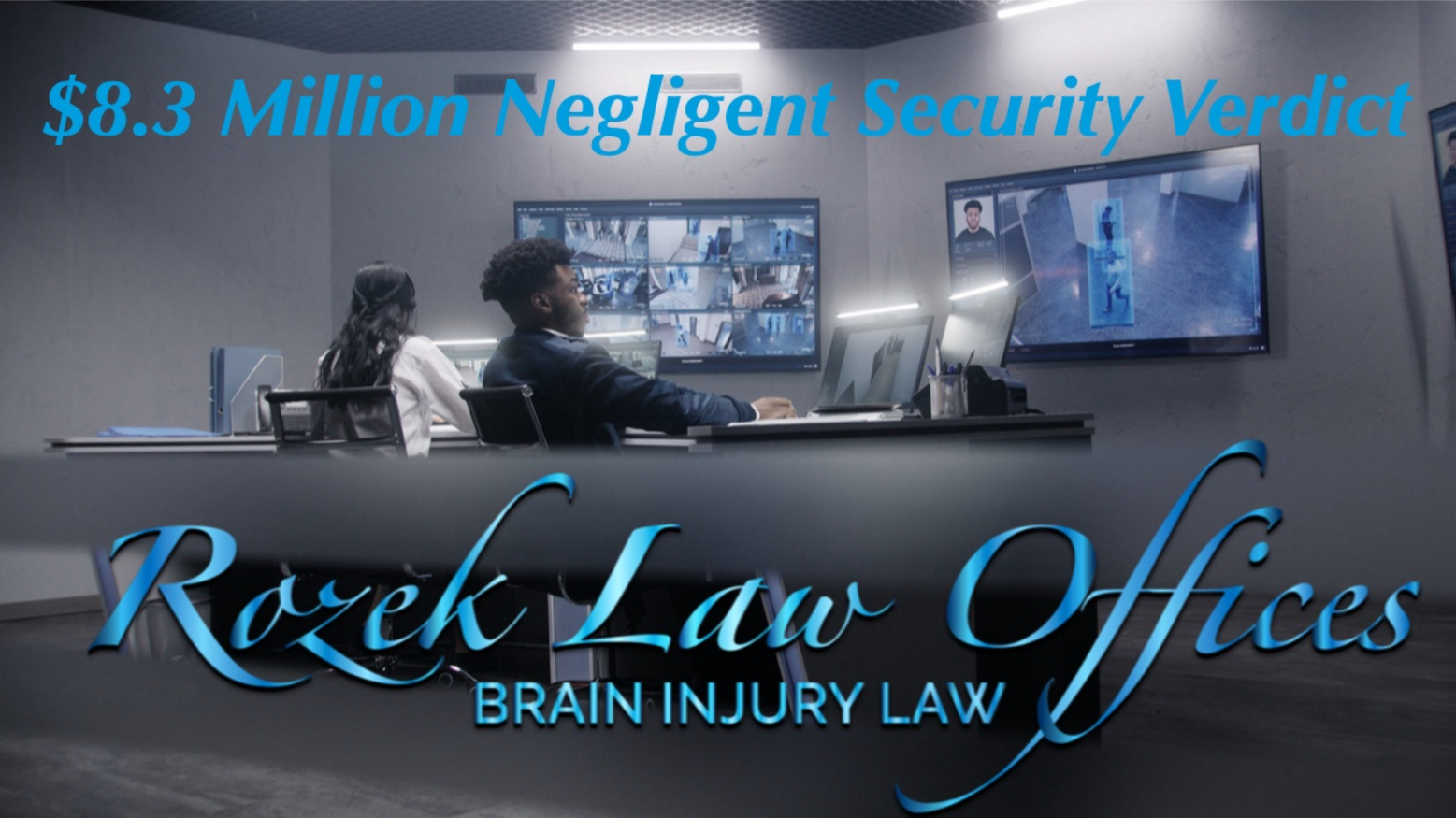
After an ongoing struggle to bring justice to the victim of an attack at a Wisconsin diabetes clinic, attorney Randy Rozek of Rozek Law Offices, S.C. has won an $8.3 million victory in which a jury found hospital security at fault for the attack and the client’s resulting injuries.
In 2014, Rozek’s client was in the waiting room of the diabetes clinic at a local children’s hospital when a 16-year-old girl with a history of violence viciously assaulted her. The victim, who was accompanied by her two young children, was “punched repeatedly in the face and head, had chunks of hair pulled from her head and was struck in the head with a chair,” Rozek said.
The children, aged 9 and 11 at the time, were so frightened by the brutal beating that they fled to a stairwell for safety, fearing their mother had been killed by the attacker and that they would be next if the attacker was to find them. Rozek’s client survived the assault, but still struggles with symptoms of a TBI (traumatic brain injury) and PTSD (post-traumatic stress disorder) following the attack.
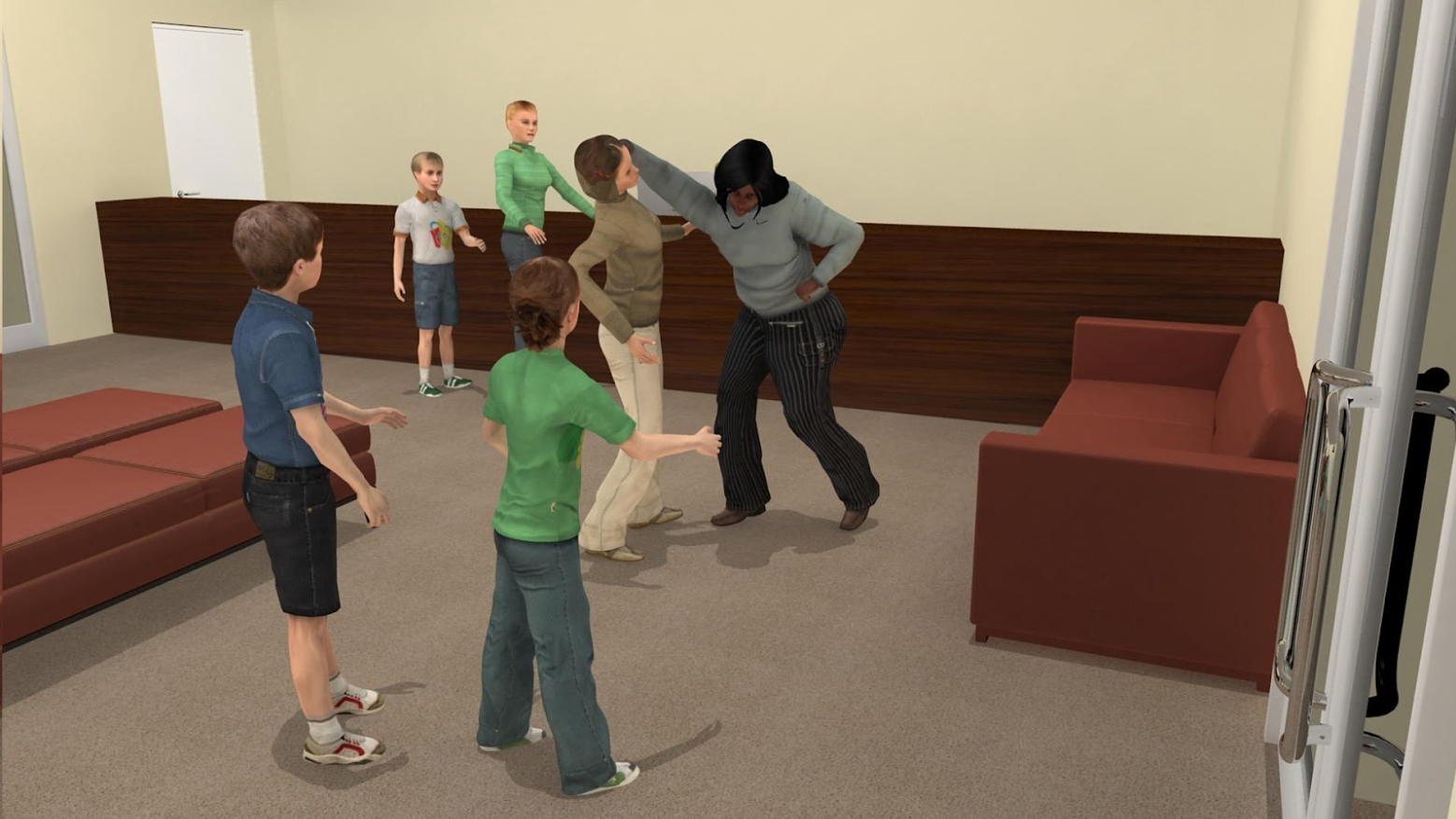
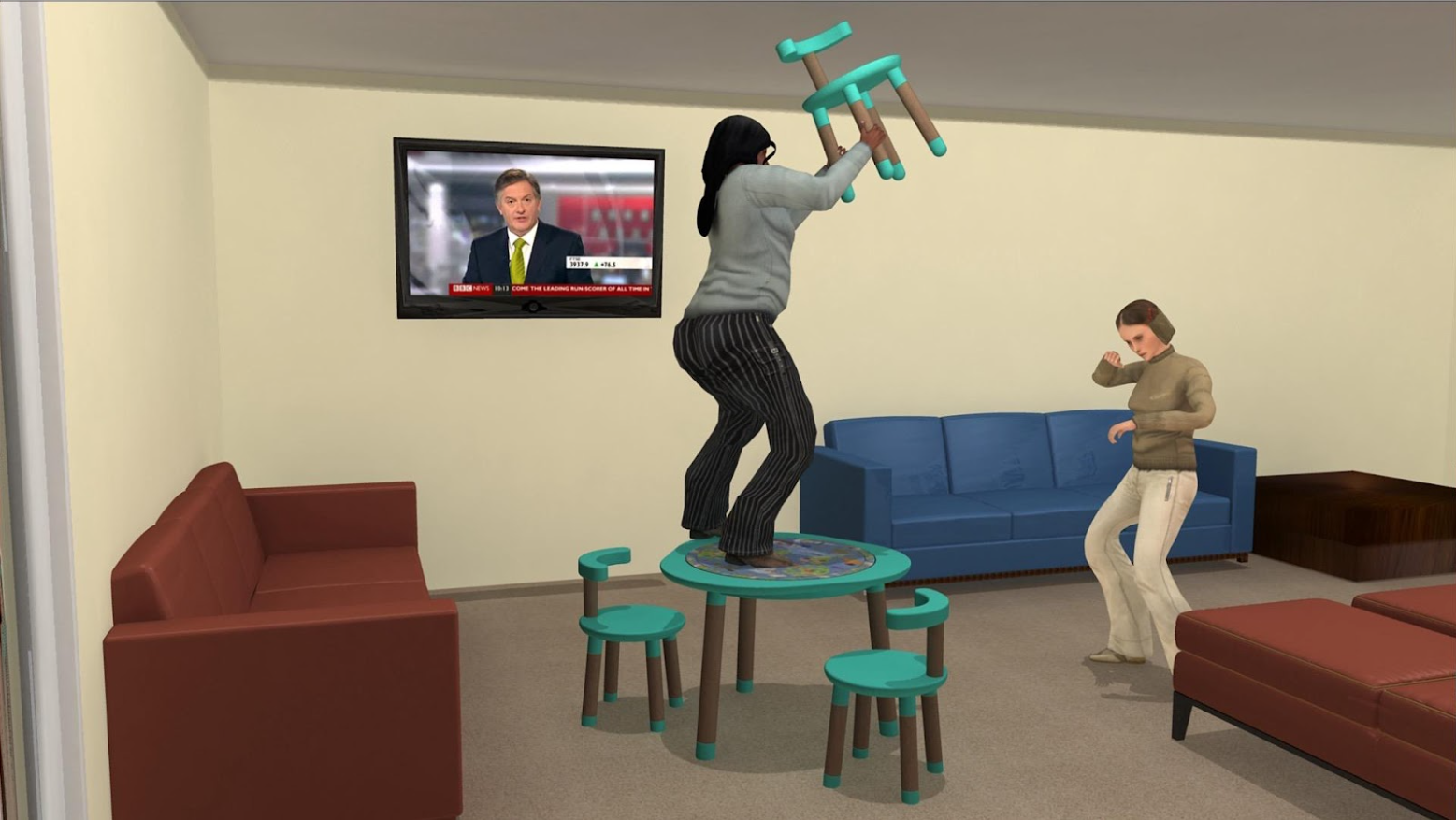
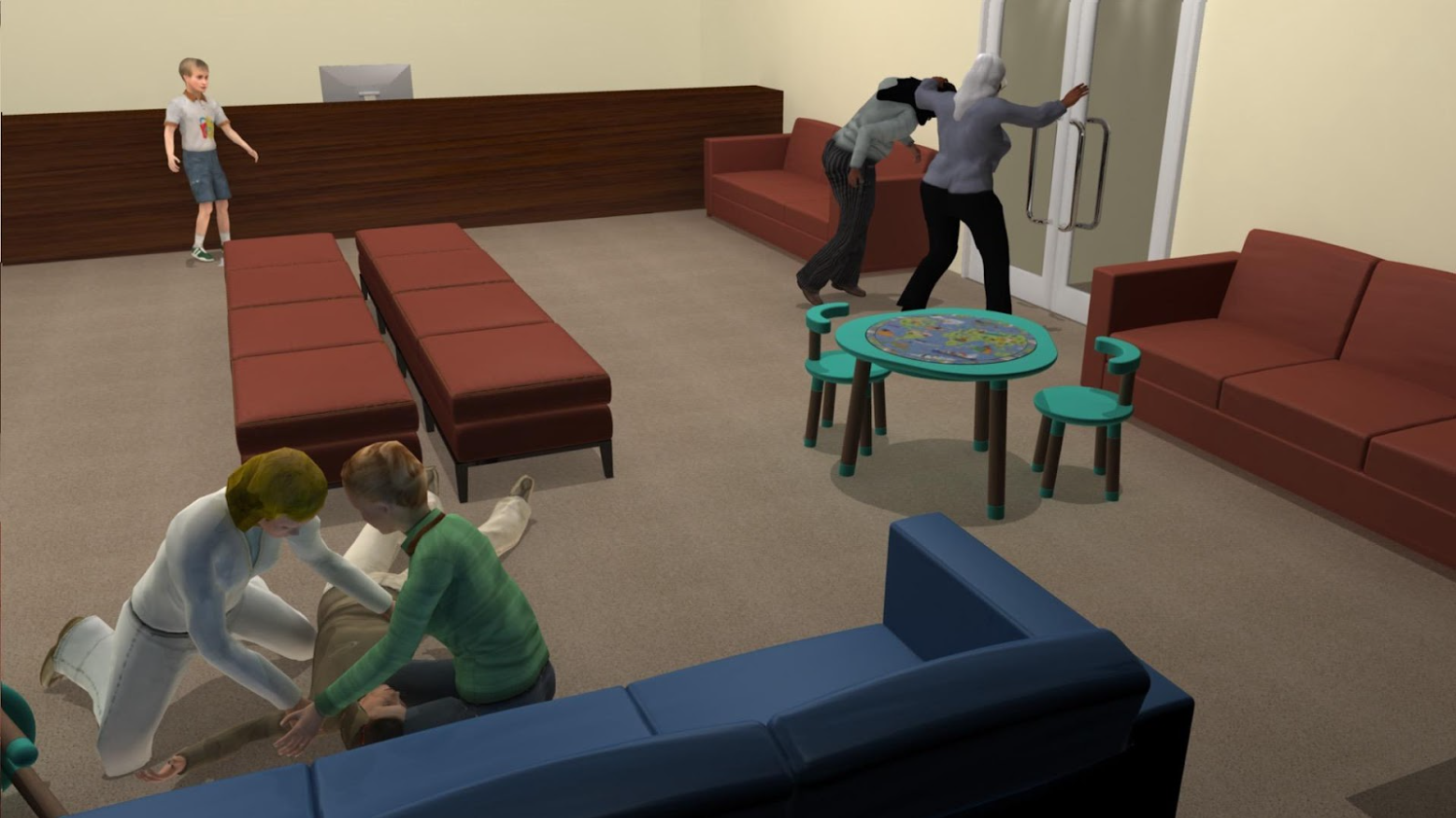
Illustrations created by sagraphics.com
In May 2013, hospital security met with the attacker and her family after the group threatened staff and visitors in the emergency room on two separate occasions. The attacker’s sister had regularly scheduled appointments at the hospital’s diabetes clinic, but the attacker had no apparent medical issues that required her to be present in the clinic.
Security presented the attacker’s mother with a behavioral contract that, if signed, would bind her to the agreement that she would not bring the attacker to her sister’s pre-scheduled appointments at the clinic. However, the attacker’s mother refused to sign the contract, but verbally agreed not to bring the attacker to future appointments at the clinic. Rather than enforcing the contract, security trusted the attacker and her family to comply with no further interference. Rozek notes that this refusal to sign the contract was a “red flag” in light of hospital security’s later negligence.
Had security done their due diligence and thoroughly investigated the attacker and her family, Rozek argued, they would have discovered the family’s patterns of disruptive and threatening behaviors had increased in severity leading up to the attack while on hospital property, and the attacker’s mother had an “extremely extensive criminal and civil complaint history ranging from disorderly conduct and resisting arrest to involvement in harassment injunctions,” according to a background check performed after the attack. This language was taken directly from a background check performed by security after the attack.
Furthermore, no security personnel was present at the diabetes clinic during the attack. The clinic had no surveillance cameras that could have been monitored by security and could have deterred the attacker’s violent behavior upon the victim.
Traumatic brain injuries often occur during incidences of trauma, such as a fall or blow to the head. Similar to a concussion, a TBI causes damage to the brain itself, impairing mental functions and the senses, and can range in strength from mild to severe. The most common symptoms of a TBI range from physical discomfort such as dizziness, headaches, and vision problems to impaired cognitive functioning of one’s memory or judgment. In the most severe cases, those with a TBI may experience seizures, confusion, or difficulty expressing themselves with words. In cases where a TBI is accompanied by post-traumatic stress disorder, however, the emotional symptoms are usually heightened.
Rozek utilized a cutting edge brain injury animation, made by Medivisuals, Inc., a trial graphics company, to educate the jury on how damage to the brain occurs and the processes that follow the initial brain injury, causing further destruction of neurons in the brain.
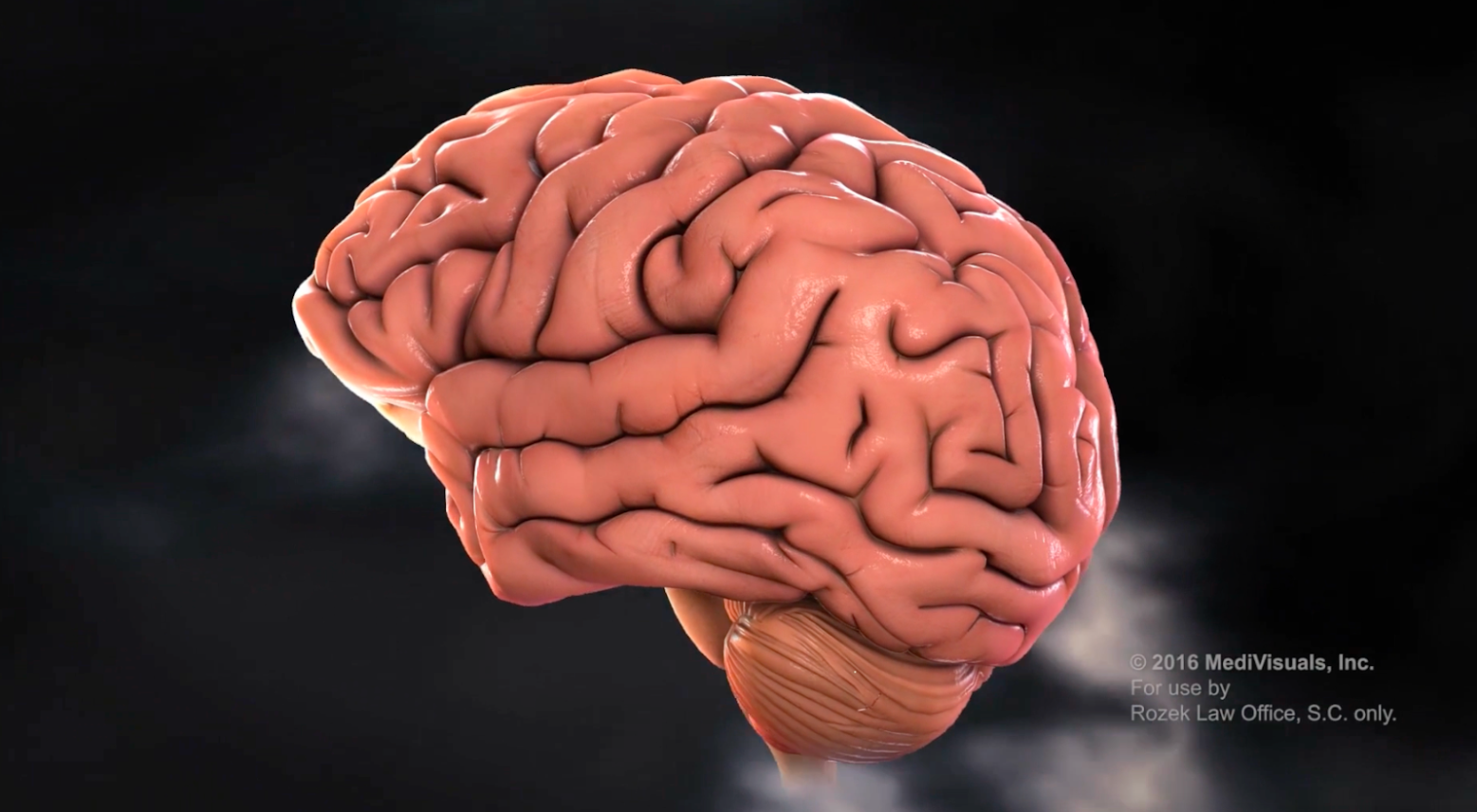
According to the National Center for PTSD, many situations in which one sustains a TBI are also psychologically distressing. Injured patients with a TBI are more likely to develop PTSD as a result of their injuries, particularly if their injuries arose from an interpersonal conflict, as was the case for Rozek’s client. The Center also notes that in cases where both a TBI and PTSD exist in a patient, symptoms related to the TBI usually decline over time, allowing the patient to make a full physical recovery, but that the effects of PTSD may have a delayed onset and can fail to improve or even worsen over time.
In the case of an attack like the one that Rozek’s client experienced, psychological disturbance is common. Due to the sudden nature and the brutality of the beating, anxiety, trouble sleeping, and poor emotional regulation are all expected symptoms that can be difficult to remedy. Many sufferers of PTSD resulting from interpersonal violence also experience a phenomenon known as hypervigilance, which is defined as a near-constant state of threat assessment. Symptoms such as these, when combined with the lingering effects of PTSD, have the potential to greatly impact a patient’s quality of life.
An estimated 5.3 million people across the U.S. are living their day-to-day lives with disabilities related to brain injuries. Although men are higher-risk for sustaining a TBI, many mild cases related to sports or recreation are likely to go undiagnosed due to their similarity to concussions and a perceived lack of danger surrounding the circumstances of the injury. In cases of assault or accidents requiring hospitalization, however, physicians are more able to help patients manage the symptoms of their injuries.
One of the largest barriers to those hoping to make a full recovery from coinciding traumatic brain injuries and post-traumatic stress disorder is the cost of treatment. Without comprehensive psychological care, symptoms of PTSD are unlikely to improve and may worsen in the level of distress a sufferer experiences. The National Center for PTSD notes that the mental symptoms of PTSD tend to look similar to post-concussive symptoms, which may lead a healthcare professional to believe that recovery from a TBI is less than it is in reality. Beginning treatment for PTSD soon after its diagnosis is key to seeing improvements in a patient such as the victim in this case.
Costs for the kind of long-term care required to alleviate the effects of PTSD, however, can be prohibitively high for some patients. In 2023,
Forbes estimated that the average cost per session for therapy is $100-$200. For more specialized, intensive therapy, such as the kind required to treat patients with PTSD, the cost may rise. The
estimated annual cost for all U.S. civilians, active-duty military personnel, and veterans was $232.2 billion in 2018, with 82% of the nation’s costs falling to civilians to cover. The average
cost for one single individual with PTSD is estimated to be $19,630, with most of the cost relating to healthcare and loss of employment.
On the other hand, the long-term costs of a traumatic brain injury can rival psychological care costs for post-traumatic stress disorder. Depending on the severity of the injury, the combined costs of immediate medical care, physical or occupational therapy, and the possibility of neurological treatment can cost anywhere between $85,000 and $3 million. Employment prospects for individuals with a TBI are also significantly worse than they were before any sustained injuries. One 2015 study placed the unemployment rate for those with TBIs two years post-injury at 60%.
Many people with TBIs settle out of court, but this option can be risky and less beneficial for those seeking fair compensation for an injury. Some insurance companies will push for an early settlement, but the long-lasting effects of brain injuries such as the one Rozek’s client experienced often remain hidden in the weeks or months following a trauma. In pursuing legal action, an injured party affords themselves and their loved ones the best chance of recouping a satisfactory amount in damages that allows them the flexibility to make a full recovery. Personal injury attorneys can assist in calculating damages and predicting how much financial support an injured party may need in the future, investigating the claim, and negotiating with insurance companies or bringing a case before a court of law.
Victories from cases like Rozek’s can help alleviate the effects of the above physical and psychological injuries in cases where negligence or malpractice is found to be an important circumstance. A jury deciding Rozek’s case found the healthcare provider and the hospital security staff under their jurisdiction liable for allowing the attacker into the clinic where the attack took place and, therefore, for the traumatic brain injury and all continuing symptoms that Rozek’s client experienced as a result of the attack. The jury also understood the medicine and science behind my client’s TBI and PTSD.
Due to the preventable nature of the attack she experienced, as well as the lasting physical and mental effects still impacting her and her family, Rozek was able to win $8.3 million in damages to put towards the victim’s medical expenses, past and future psychological costs for both her and her children, potential loss of wages following her injuries, and the pain and suffering caused to her and her family during the unfortunate attack.

Rozek Law Offices, S.C.
3970 N Oakland Ave Ste 604
Milwaukee, Wisconsin 53211
(414) 374-4444
